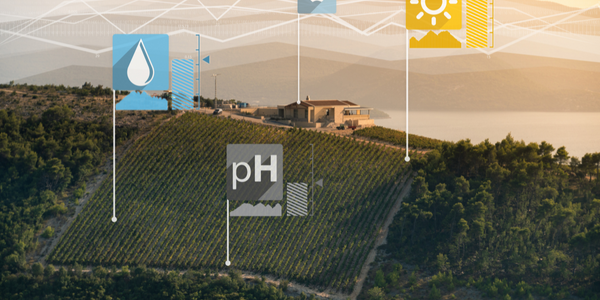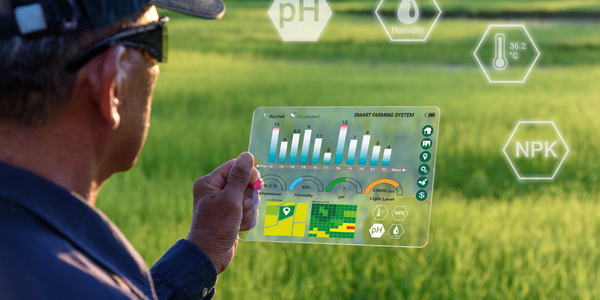Technology Category
- Networks & Connectivity - 5G
- Platform as a Service (PaaS) - Application Development Platforms
Applicable Industries
- Agriculture
- Education
Applicable Functions
- Product Research & Development
- Sales & Marketing
Use Cases
- Farm Monitoring & Precision Farming
- Intrusion Detection Systems
About The Customer
Welthungerhilfe is one of Germany’s largest non-governmental organizations (NGO), founded in 1962. It has supported more than 8,900 overseas projects in 70 countries since its inception. The organization works on the principle of help for self-help, providing fast disaster relief, reconstruction, and long-term development cooperation projects with national and international partner organizations. In Zimbabwe, Welthungerhilfe supports the efforts of people to rise above hunger and poverty through educating farmers. The organization is committed to reaching all farmers, not just those who are online, and has been using a variety of modern channels to communicate with their audience.
The Challenge
Welthungerhilfe, a German non-governmental organization (NGO), has been supporting overseas projects in 70 countries since its inception in 1962. In Zimbabwe, the organization is committed to helping people rise above hunger and poverty through farmer education. The challenge was to bridge the information gap for farmers in sub-Saharan Africa. Farmers needed access to timely, relevant, and accurate information about best farming practices to improve production, finance, and marketing activities. Welthungerhilfe introduced a variety of modern channels to communicate with their audience, including mobile apps, WhatsApp messages, and podcasts. However, only 55% of the Zimbabwean population has Internet access, and only 50% have smartphones, with these statistics being even lower in rural areas. As Welthungerhilfe's goal was to reach all farmers, not just those online, it was necessary to find another way to communicate.
The Solution
Welthungerhilfe found a solution in the simplest, most ubiquitous channel: SMS. SMS is universally accepted on all mobile phones, has high open rates, is delivered instantly, and offers a good return on investment (ROI). In 2016, Welthungerhilfe began sending messages through the Infobip platform using their user-friendly campaign creation tool. They chose Infobip as a messaging provider due to its reliability, cost, and advanced features such as the ability to monitor and analyze campaigns. Over two years, Welthungerhilfe sent a total of 850,000 messages to 20,000 farmers in Zimbabwe. The messages included alerts and farming advice. The Infobip communication platform also allowed for instant feedback from farmers, providing them with an agricultural extension program to educate and deliver much-needed information in the region. The platform is currently being administrated by Welthungerhilfe and the Ministry of Agriculture, ensuring the long-term sustainability of the approach.
Operational Impact
Quantitative Benefit

Case Study missing?
Start adding your own!
Register with your work email and create a new case study profile for your business.
Related Case Studies.

Case Study
Intelligent Farming with ThingWorx Analytics
Z Farms was facing three challenges: costly irrigation systems with water as a limited resource, narrow optimal ranges of soil moisture for growth with difficult maintenance and farm operators could not simply turn on irrigation systems like a faucet.

Case Study
Greenhouse Intelligent Monitoring and Control Solution
Farming Orchids is the most successful form of precision farming in Taiwan, and also the most exported flower. Orchids need a specific temperature and humidity conditions to grow and bloom, and its flowering time may not be in line with market demands, so the price collapses when there is overproduction. Therefore, some farmers began to import automated greenhouse control systems for breeding and forcing, which not only improves quality, but also effectively controls the production period and yield to ensure revenue. In 2012, an orchid farmer built a Forcing Greenhouse of about 200 pings (approximately 661 Square Meters) in Tainan, Taiwan. The system integrator adopted Advantech’s APAX-5000 series programmable automation controllers to build the control platform, coupled with Advantech WebAccess HMI/SCADA software, to achieve cloud monitoring. The staff of the orchid field can monitor important data anytime via smart phone, iPad, and other handheld devices, and control the growth and flowering conditions. System requirements: In the past, most environmental control systems of orchid greenhouses in Taiwan used PLCs (Programmable Logic Controller) with poorscalability and control, and could not be connected to the Internet formonitoring from the cloud. For advanced database analysis and networking capability, the PC platform must be adopted. Therefore, PAC Systems (Programmable Automation Controller) with both PLC programming capabilities andPC functions is a better choice.The environmental control of the Orchid greenhouse switches on and off devices like fan, shade net, cooling/heat pump, liquid flow control, water-cooling wall etc. It is controlled by a control panel of electric controllers, and is driven by a motor, to adjust the greenhouse temperature, humidity, and other environmental conditions to the set parameters.

Case Study
Enabling Internet of Things Innovation in Agriculture
DigiBale, wanted to apply technology know-how and IP from implementations successfully to more agriculture sectors including cotton, forestry, sugarcane and cattle. However, farmers and growers still have worries about the connected technology.

Case Study
Precision beekeeping with wireless temperature monitoring
Honeybees are insects of large economic value and provide a vital service to agriculture by pollinating a variety of crops. In addition, bees provide us with valuable products such as honey, beeswax, propolis, bee venom, etc. Monitoring of honeybee colony health, population, productivity, and environmental conditions affecting the colony health have always been exceedingly difficult tasks in apiculture. Research has shown that even small deviations (by more than 2°C) from the optimal temperatures have a significant influence on the development of the brood and the health of adult bees.





